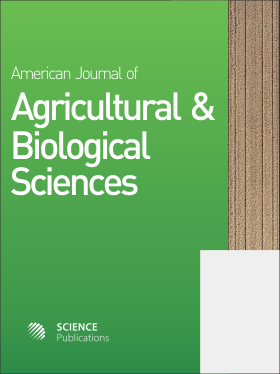Assessment of the Maize (Zea mays)-Mucuna (Mucuna deeringianum Bort) Agroecosystem
- 1 Facultad de Ciencias Agronomicas, Universidad Autonoma de Chiapas, Campus V. Km7. Carretera Villaflores-Tuxtla Gutierrez. 30470. Villaflores, Mexico
- 2 Area de Proyectos de Ingeniería, Universidad de Almería, Ctra Sacramento s/n. La Cañada de San Urbano. 04120. Almería, Mexico
Abstract
Problem statement: In Selva de Chiapas, Mexico, the traditional farming technique of slash-fell-burn used on hillside fields has caused severe soil deterioration. Consequently, indigenous farmers reacted by developing several agroecological practices that improve the physical, chemical and biological fertility of the soils. Standing out among these techniques is the use of Mucuna (Mucuna deeringianum Bort.) in rotation with maize (Zea mays L). Approach: The objective of this study was to determine the effect of the maize-mucuna system on soil fertility, ecosystem diversity and maize crop yield. The study was conducted in the Tulija Valley, Chiapas, in the autumn-winter growing season (November-April). A completely random design was applied to four periods of consecutive maize-mucuna cropping (0, 5, 10 and 15 years) in order to analyze the most significant variables related to soils, weeds, seed bank and yield. Results: The results obtained reveal the higher nutrient concentration in the topsoil (0-15 cm) and better crop yield in the treatments with Mucuna rotation. No direct relationship was observed between nutrient content and duration of maize-mucuna system usage. However, the diversity of weeds and similarity of species both diminished where this farming method was used. Conclusion/Recommendations: It was determined that the use of the maize-mucuna agroecosystem helps to increase and maintain agroecological sustainability, supporting this practice that has been adapted and utilized by indigenous Choles for more than 30 years.
DOI: https://doi.org/10.3844/ajabssp.2012.186.193

- 4,591 Views
- 4,284 Downloads
- 0 Citations
Download
Keywords
- Sustainability
- agroecosystem
- tropic
- indigenous systems
- tulija valley
- chiapas
- traditional farming
- mucuna deeringianum
